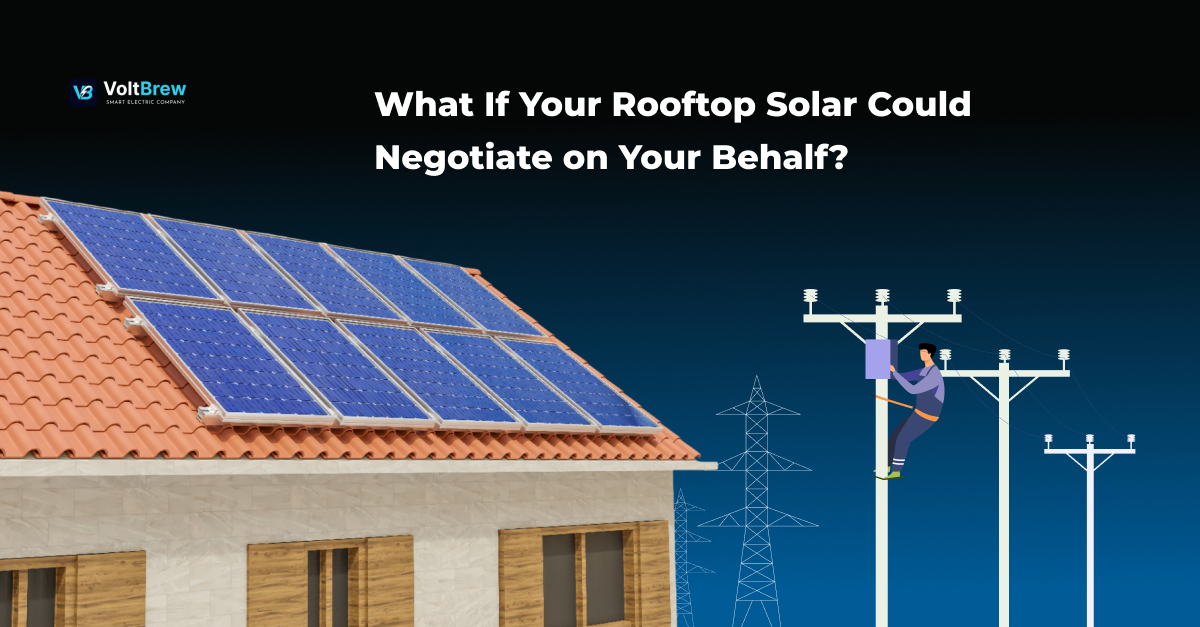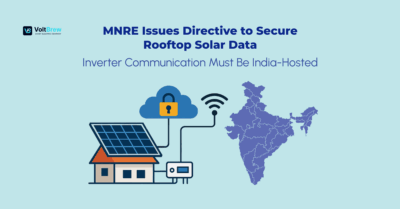Welcome to the Era of Agentic DERs
Imagine this: your rooftop solar panel is no longer just a passive energy generator. Instead, it has evolved into a smart, autonomous agent capable of analyzing real-time energy prices, responding to signals from the grid, and making profitable decisions on your behalf. It knows when to store energy, when to use it, and when to trade it in peer-to-peer energy markets. This futuristic-sounding scenario is quickly becoming a reality thanks to advancements in distributed energy intelligence.
Welcome to the age of Agentic Distributed Energy Resources (DERs)—energy systems powered by autonomous software agents that can make decisions without human intervention. These intelligent agents empower DERs like solar panels, batteries, electric vehicles, and smart appliances to optimize their operation based on economic, environmental, and grid-related conditions.
From Passive Power to Proactive Participation
The evolution of the grid is reshaping the way energy is generated, distributed, and consumed. Traditionally, rooftop solar panels were passive systems: they absorbed sunlight, converted it into electricity, and either powered your home or exported excess power to the grid.
However, as renewable penetration increases, grid dynamics become more complex. Time-of-use pricing, net metering policies, and frequency regulation markets are making energy systems more dynamic and less predictable. In this new environment, passive systems fall short.
Enter agentic DERs. These systems utilize algorithms, sensors, and real-time data to:
- Automatically respond to fluctuations in electricity tariffs.
- Engage in energy arbitrage by buying low and selling high.
- Predict and react to demand-supply imbalances.
- Collaborate with nearby DERs to form Virtual Power Plants (VPPs).
This intelligent responsiveness doesn’t just benefit the consumer—it helps stabilize the grid, reduce reliance on fossil fuels, and support a more decentralized energy architecture.
Intelligent Software Agents: The Brains Behind the Operation
The concept of an intelligent agent comes from the fields of artificial intelligence and distributed systems. In energy systems, these agents are software programs that operate with a level of autonomy. They monitor environmental data (sunlight, temperature, forecast), market signals (real-time electricity prices), and grid conditions (demand surges, outages) to make optimized decisions.
Key Capabilities of Smart Energy Agents:
- Predictive Analytics: Forecasting solar output, energy consumption, and market trends.
- Decision Making: Determining the best time to store, sell, or consume energy.
- Learning and Adaptation: Using machine learning to improve decision-making over time.
- Multi-Agent Coordination: Collaborating with other agents for collective optimization.
These software agents can be embedded in inverters, batteries, energy management systems, or cloud-based platforms. Their role is analogous to a financial advisor, but for your energy.
Real-World Examples: Where Agentic DERs Are Already at Work
This isn’t just theory—multiple companies and research institutions are already deploying early versions of these agentic systems:
1. Tesla Autobidder
Tesla’s Autobidder enables its Powerwall and Powerpack customers to participate in energy markets. The AI-driven platform makes automated decisions on when to charge or discharge batteries based on electricity market prices.
2. Pacific Northwest National Laboratory (PNNL)
PNNL’s GridWise project explores how devices like HVAC systems and water heaters can respond autonomously to price signals and grid needs through transactive energy mechanisms.
3. TokWise’s GuardianTrade
This AI-based platform manages large renewable energy portfolios, making autonomous trading decisions to optimize revenue and grid balancing.
4. Power Ledger (Australia)
A blockchain-based platform that enables peer-to-peer energy trading, allowing DERs to set their own price preferences and autonomously match with buyers in the local grid.
The Backbone: Open Protocols and Interoperability
For agentic DERs to work efficiently at scale, communication and interoperability are critical. Open protocols provide the common language these systems need to interact with each other and external actors like utilities and market operators.
Key Protocols Powering Interoperability:
- OpenADR (Open Automated Demand Response): Facilitates automated, secure, and standardized communication between utilities and DERs for demand response.
- Beckn Protocol: Originally built for open commerce platforms, Beckn is being extended to the energy sector to enable decentralized, peer-to-peer energy services with standardized APIs and agent discoverability.
- OCPP (Open Charge Point Protocol): A standard that allows EV charging stations to communicate with back-end management systems.
Open protocols help different devices work together, so energy agents can trade in markets and microgrids.
Why This Innovation Is a Game-Changer
The shift from static to agentic DERs represents a paradigm shift in how we think about energy:
- Grid Resilience: Agentic DERs help stabilize the grid by autonomously responding to changes in demand and supply.
- Economic Efficiency: Consumers can reduce energy bills and earn revenue by selling excess energy at optimal times.
- Environmental Gains: Smart load shifting enables higher penetration of renewables, reducing reliance on fossil fuels.
- Consumer Empowerment: Users gain the benefits of participation in energy markets without technical knowledge or manual control.
As DER penetration grows globally—expected to reach over 1,500 GW by 2030—agentic technologies could be the key to integrating this distributed power seamlessly into our grid.
Future Outlook: The Rise of the Decentralized Energy Economy
The convergence of AI, edge computing, and open standards is fueling a new energy era—one where autonomy, decentralization, and market participation are the norm, not the exception. Regulatory bodies are beginning to adapt as well, with frameworks evolving in the U.S., EU, and parts of Asia to enable DERs to participate in real-time energy markets.
Energy-as-a-Service platforms may soon allow consumers to subscribe to agentic energy bundles, paying not just for electricity, but for optimized and monetized energy behavior.
From demand flexibility to real-time microtransactions, the agentic energy revolution will fundamentally change how we value and manage power.
Final Thoughts: Smarter Energy, Smarter Living
We are entering a new phase of energy evolution. With agentic DERs, homes and businesses are no longer passive endpoints—they are intelligent, autonomous actors in a decentralized energy marketplace.
At VoltBrew, we are pioneering solutions at the intersection of AI, DERs, and open protocols. Our mission is to empower the edge of the grid with tools that make energy systems cleaner, smarter, and more efficient. Whether you’re a prosumer, policymaker, or technologist, the future of energy is something you can actively shape—and your rooftop solar might just be your first autonomous ally in that journey.
Stay tuned as we build the intelligent energy systems of tomorrow.



